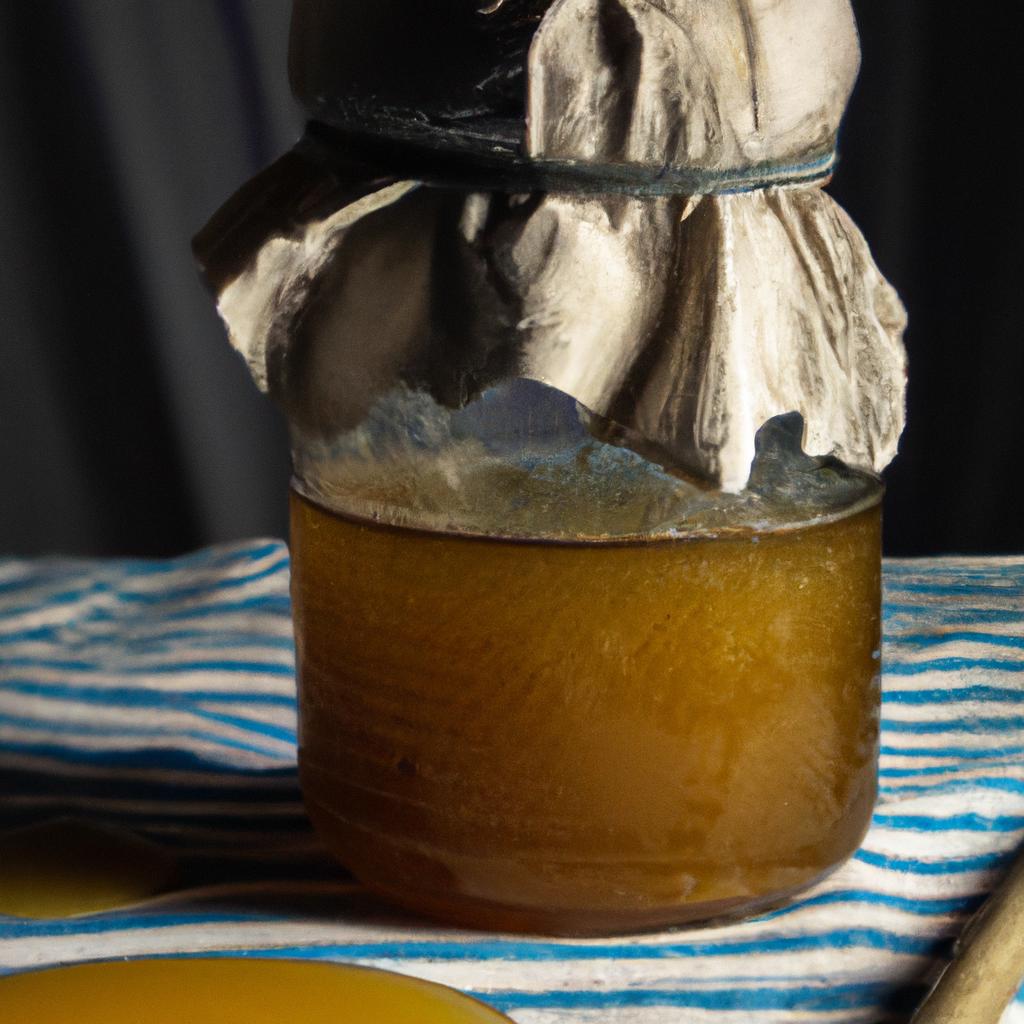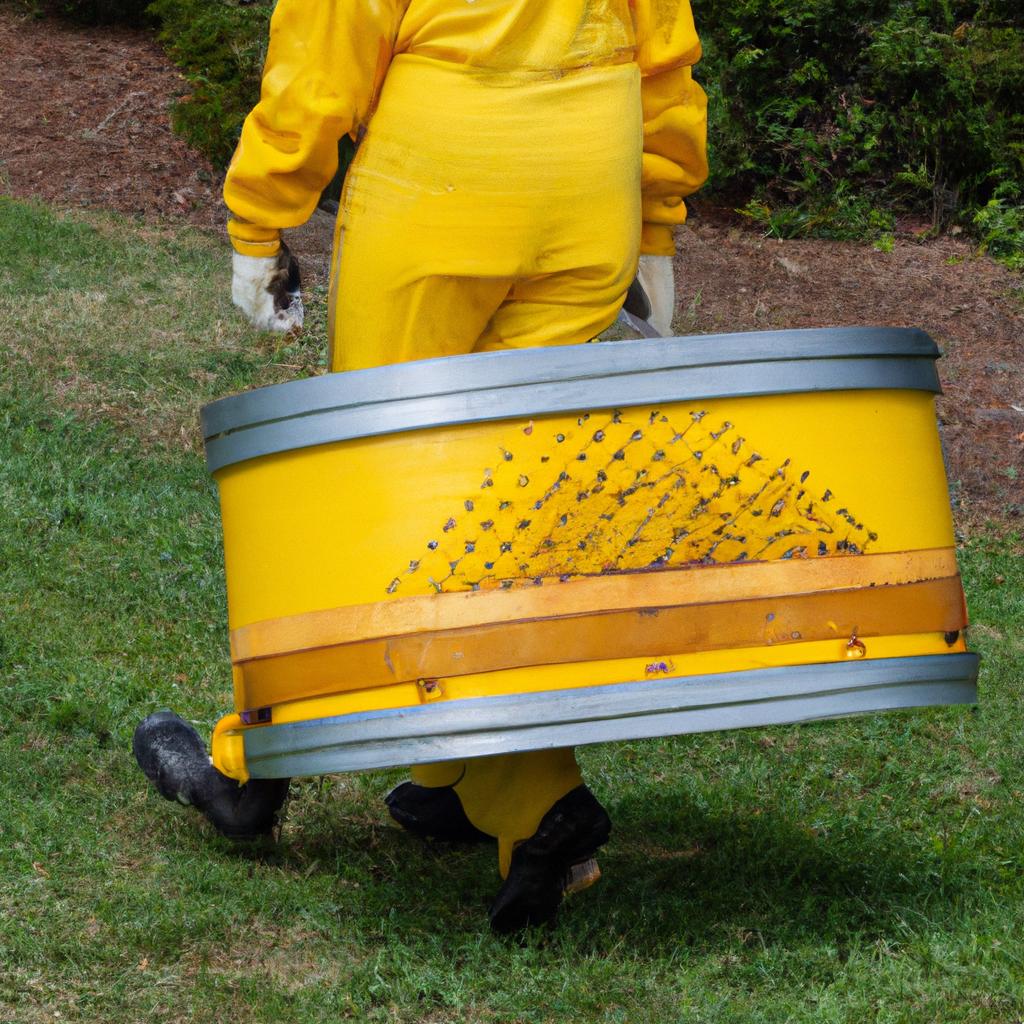Honey is a natural sweetener that has been used for centuries for its nutritional and medicinal properties. It is a versatile ingredient that can be used in cooking, baking, and as a natural remedy for various ailments. However, when it comes to using honey as an ingredient, it is essential to know its weight, especially if you are following a recipe. In this article, we will answer the question, “How much does 1 gallon of honey weigh?” and provide you with all the information you need to know about honey’s density and weight.
The density of honey

Density is the measure of how much mass a substance has in a given volume. In simple terms, it is the weight of a substance per unit of volume. Honey’s density can vary depending on its moisture content, temperature, and the type of honey. On average, honey has a density of 1.36 kilograms per liter or 12 pounds per gallon.
Honey’s density is higher than that of water, which has a density of 1 kilogram per liter or 8.34 pounds per gallon. This means that honey is heavier than water and will sink if poured into a container of water. The high density of honey is due to its high sugar content, which makes it more viscous than water.
Knowing the density of honey is essential when it comes to measuring honey accurately. Different types of honey can have different densities, so it is crucial to check the density of the specific honey you are using before measuring it. This can help you avoid using too much or too little honey in your recipe, which can affect the taste and texture of the final product.
How much does a gallon of honey weigh?

Now that we know the density of honey, we can calculate the weight of 1 gallon of honey. As mentioned earlier, honey has a density of 1.36 kilograms per liter or 12 pounds per gallon. Therefore, 1 gallon of honey weighs approximately 48 pounds or 21.77 kilograms.
However, it is important to note that the weight of honey can vary depending on its moisture content. Honey with a higher moisture content will weigh more than honey with a lower moisture content. Additionally, the weight of honey can be affected by its temperature. Honey that is warmer will weigh less than honey that is colder due to thermal expansion.
In conclusion, knowing the weight of 1 gallon of honey is essential when it comes to using honey as an ingredient. Honey’s density and weight can vary depending on various factors, so it is crucial to check the specific honey’s density before measuring it. By doing so, you can ensure that you are using the right amount of honey in your recipe, which can affect the taste and texture of the final product. BeeKeepinglove.com is the ultimate resource for all things honey-related, so be sure to check out our other articles for more information about honey and beekeeping.
Next, write sections 3 and 4
Calculation of the weight of 1 gallon of honey
Calculating the weight of 1 gallon of honey is relatively straightforward. As mentioned earlier, honey has a density of 1.36 kilograms per liter or 12 pounds per gallon. Therefore, to calculate the weight of 1 gallon of honey, you need to multiply the volume in gallons by the density of honey. For example, if you have 2 gallons of honey, the weight would be:
2 gallons x 12 pounds per gallon = 24 pounds
It is important to note that the weight of honey can vary depending on its moisture content and temperature, as mentioned earlier. Therefore, it is crucial to check the specific honey’s density before measuring it to ensure accurate calculations.
Measuring honey
There are different units of measurement for honey, including weight, volume, and honeycomb cells. However, weight and volume are the most commonly used units of measurement for honey. When it comes to measuring honey, accuracy is crucial, as using too much or too little honey can affect the taste and texture of the final product.
To measure honey accurately by weight, you will need a kitchen scale. Place the container of honey on the scale and tare it to zero. Then, pour the honey into the container until you reach the desired weight. To measure honey accurately by volume, you can use measuring cups or spoons. It is important to note that honey can be sticky, so it is recommended to use a non-stick cooking spray on the measuring cups or spoons to prevent the honey from sticking.
It is also essential to know the specific gravity of the honey you are using when measuring honey by volume. Specific gravity is the ratio of the density of a substance to the density of water. Honey’s specific gravity can vary depending on the type of honey, so it is crucial to check the specific gravity of the honey you are using before measuring it. You can use a hydrometer to measure the specific gravity of honey.
In conclusion, measuring honey accurately is essential when it comes to using honey as an ingredient. There are different units of measurement for honey, including weight and volume, and it is crucial to know the specific gravity of the honey you are using when measuring it by volume. By measuring honey accurately, you can ensure that you are using the right amount of honey in your recipe, which can affect the taste and texture of the final product. BeeKeepinglove.com is the ultimate resource for all things honey-related, so be sure to check out our other articles for more information about honey and beekeeping.
The benefits of knowing the weight of honey
Knowing the weight of honey has several benefits, especially when it comes to cooking, baking, and selling honey. Here are some of the advantages of knowing the weight of honey:
Importance in cooking and baking
When it comes to cooking and baking, using the right amount of honey can make a big difference in the final product’s taste and texture. Using too much or too little honey can affect the sweetness and moisture content of the dish, which can lead to a less than desirable outcome. Knowing the weight of honey can help you measure the right amount of honey, ensuring that your dishes have the perfect balance of flavor and texture.
Selling honey by weight
If you are a beekeeper who sells honey, knowing the weight of honey is crucial to determine the price of your product. Honey is often sold by weight, and using the wrong weight can lead to inaccurate pricing, which can affect your profits. By knowing the weight of honey, you can ensure that you are pricing your honey accurately, which can help you maximize your profits.
Ensuring accurate nutrition information
Knowing the weight of honey is also essential when it comes to providing accurate nutrition information to consumers. Honey is a nutritious food that contains various vitamins, minerals, and antioxidants. However, the nutritional value of honey can vary depending on the amount consumed. By knowing the weight of honey, you can provide accurate nutrition information to consumers, which can help them make informed decisions about their diet.
Conclusion
In conclusion, knowing the weight of 1 gallon of honey is essential when it comes to using honey as an ingredient, selling honey, and providing accurate nutrition information to consumers. Honey’s density and weight can vary depending on various factors, so it is crucial to check the specific honey’s density before measuring it. By doing so, you can ensure that you are using the right amount of honey in your recipe, pricing your honey accurately, and providing accurate nutrition information to consumers. BeeKeepinglove.com is the ultimate resource for all things honey-related, so be sure to check out our other articles for more information about honey and beekeeping.
